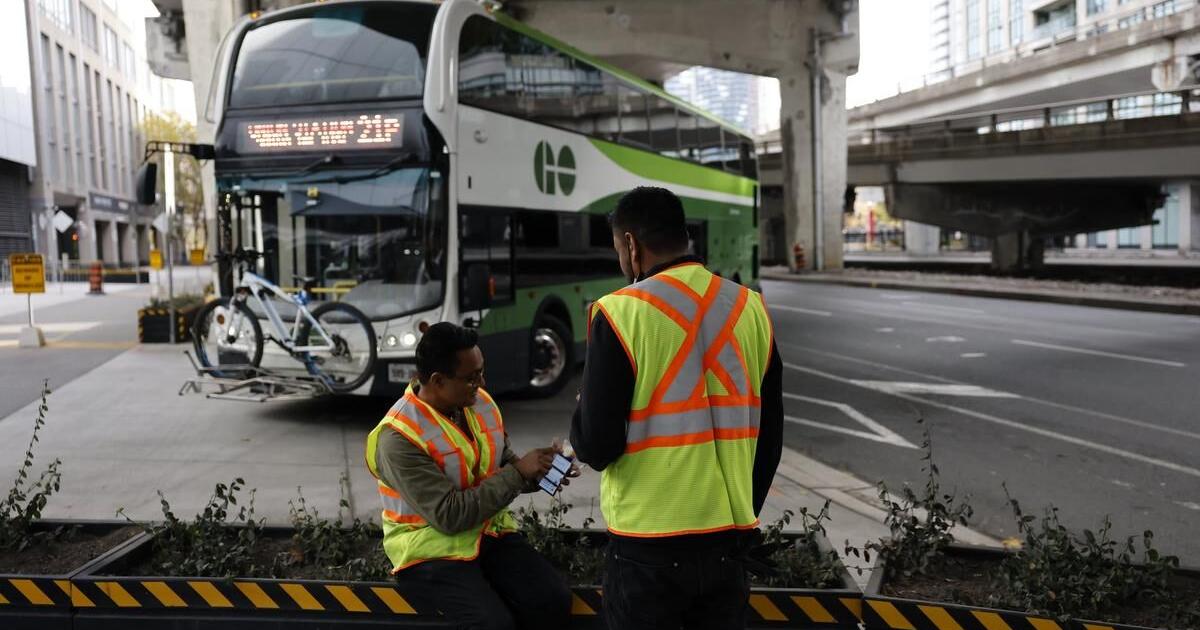Not that I'd agree with you even if the union's issues were with money. No one is obligated to work poverty wages. The cost of living is going up, if you don't increase people's wages accordingly they will go somewhere and then you'll be left without anyone to run the transit system at all.
I'm completely for living wages, and they should be mandatory. Getting a living wage shouldn't be dependant on you being in a union. No human being should not be able to cover the cost of food and housing for themselves and their dependants. However, I don't think there is any risk of the bus drivers going somewhere else and having nobody left to run the transit system because if that was the case Metrolinx would raise the wages in order to be able to hire more drivers and it wouldn't require a strike to get that to happen.
Yes, the cost of living is going up, however the cost of living is a vicious circle... the more that people can afford, the more they are willing to pay to get what they want, the more the prices go up. In Canada close to 20% of the workforce works in the public sector so if you raise wages significantly in the public sector it will have a noticeable affect on prices going up further. The only reason a house is sold for $2 million in Toronto is because someone wants that house enough to pay $2 million and has access to $2 million to spend on it. If everyone didn't have access to mortgages or funding to allow them to pay for a $2 million house and all they could afford was $500 thousand, miraculously the cost of the house would be $500 thousand. The greater issue with affordability is the size of the gap between rich and poor... if everyone had the same amount of money then everyone could afford almost everything (with some things still out of reach but only because of differing priorities on spending/saving) and it would quickly become clear what is actually "out of stock" vs no longer affordable.
Focusing on the GO workers... they have contracted out GO rail staff to Bombardier/Alstom already so doing that for busses doesn't seem like that much of a stretch. Contracting out can be a good thing. It really depends on many factors. Is GO today running its own fleet of busses as a well run operation achieving efficiencies of scale, or has it created a bloated bureaucracy with inefficient working arrangements? Is contracting out going to break up the monopoly, or just shift the monopoly to a very large private company that needs to make profit in addition to running the service (i.e. where did the money for profit come from and if it were run similarly by the government where could that profit have been invested)? Is the contract in a small enough chunk to get a broad range of companies able to bid, or is the contract so big that only a few very large companies could contemplate bidding? Will the government continue to run a portion of the fleet themselves so they have a way of comparing the costs of the government running a fleet at cost (no money paid out to cover profit) vs a company which needs to show a profit? It seems wrong to assume that government will always run an efficient operation, and it also seems wrong to assume that large companies that bill the government will do it better for less. However, if you are bound to a contract that doesn't allow you to find efficiencies you certainly will not be efficient.
All that said, it may entirely be that the GO bus drivers are underpaid and deserve more. Certainly a wage increase cap of 1% across a wide swath or the workforce doesn't seem to suggest that a detailed analysis into what to fairly pay a person based on job responsibilities and job performance has occurred. The challenge is that in a monopoly like situation the market is so distorted that it is hard to know the value of work. The government is clearly in a position where they can act unfairly and put caps on wages that are not supported by any market data, and the union can ask for wages that aren't comparable to a free market because a free market for the same skill set doesn't exist and can rule out performance based pay measures.





